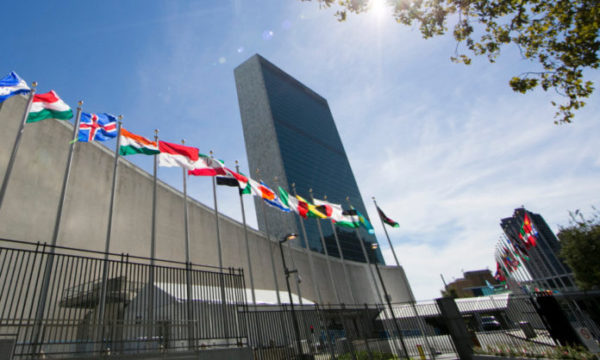The United Nations expressed its appreciation of the state of play in demarcating the border between the two countries.
The installation of the last terminal to definitively demarcate a long border of more than 2000 kilometers between Nigeria and Cameroon may not be for tomorrow, mainly because of security issues related to the activities of the Nigerian terrorist sect Boko Haram the reduction of military capacity is far from curbing its capacity for harm. However, in view of the progress of the demarcation process, the United Nations (UN) has not failed to express its satisfaction with the demarcation of the border between Cameroon and Nigeria. It was on March 13, 2019, after a visit to Cameroonian soil by the representative of the UN Secretary-General and Head of the United Nations Office for West Africa and Sahel Mohamed Ibn Chambas.
Visiting Cameroon to inquire about the evolution of this issue, the UN diplomat had talks with Prime Minister Joseph Dion Ngute. Commenting on his visit, Antonio Guturres’s envoy said that “the work is progressing well despite some geographical and security difficulties. But all is well and we hope to close this file soon. ”
In any case, the envoy of the UN Secretary-General welcomed “the goodwill of the Nigerian presidents Mohammadu Buhari and Cameroonian Paul Biya to work towards a rapid evolution for the end of the work” . This is undoubtedly an essential prerequisite for the completion of the demarcation process.
2100 km long, the border between the two countries is demarcated after the 2006 Green three (United States) Agreement signed between Cameroon and Nigeria ending the border dispute between the two neighbors on the Bakassi Peninsula, in the Southwest Region. An agreement initialed by Cameroonian President Paul Biya and his then Nigerian counterpart Olusegun Obasanjo, in the presence of then UN Secretary General Koffi Ata Annan, and in front of friendly countries, including Germany, Great Britain and France, while the Nigerian and Cameroonian armies have had several skirmishes for fifteen years. Territory rich in hydrocarbons, Nigeria disputed Bakassi in Cameroon since the 1990s, before officially recognizing that it is indeed a Cameroonian territory notwithstanding the fact that the majority of inhabitants are Nigerians.



